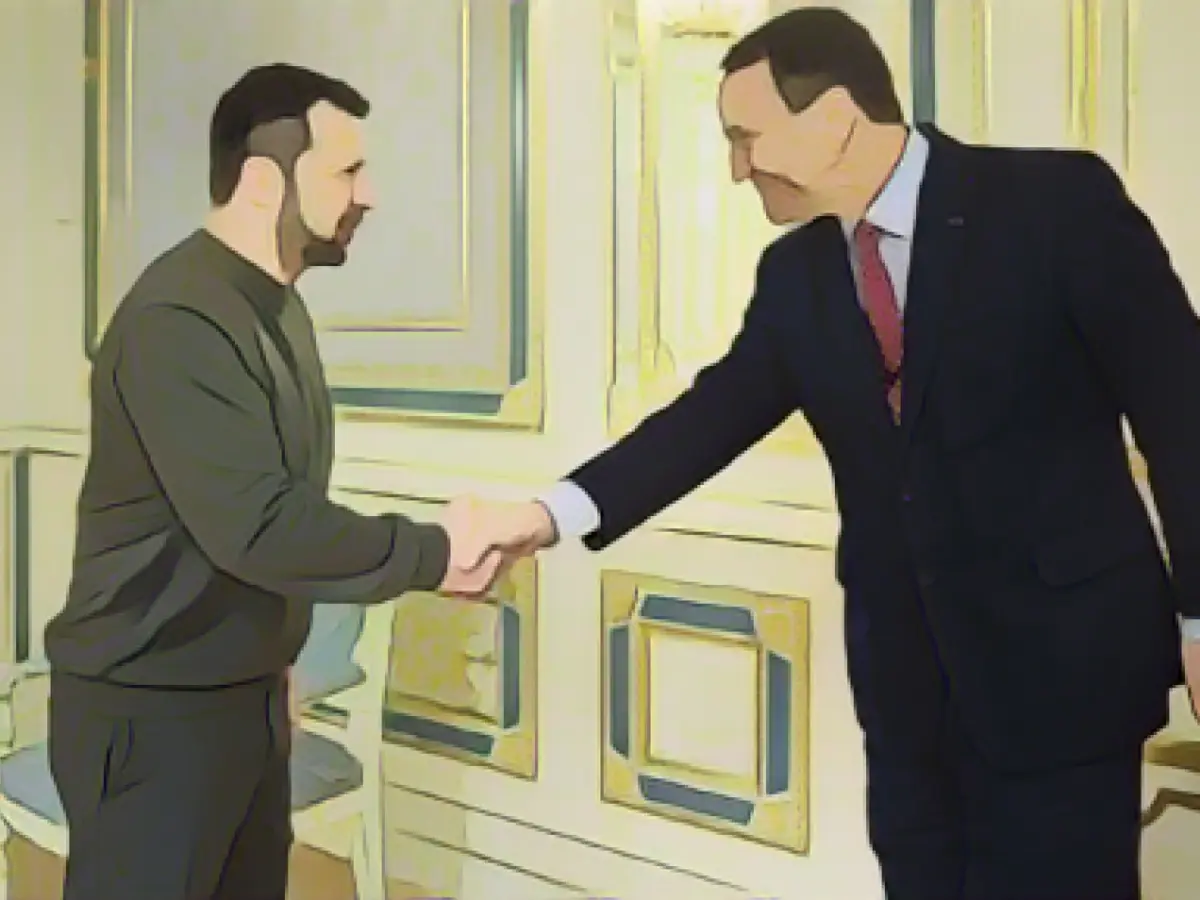Newly Appointed Polish Foreign Minister Stands Firm on Ukraine Support
In his first visit abroad as Poland's new foreign minister, Radoslaw Sikorski declared his country's unwavering support for Ukraine, blasting Russia for attacking its neighbor and causing immense destruction. Despite the potential escalation of conflict, air sirens warning of incoming Russian airstrikes played in the background. Sikorski made it clear, "This is the last colonial war in Europe, and it must end with Russia losing and Ukraine triumphing."
When asked about Western mobilization, Sikorski insisted that economic might should be leveraged to put an end to Russia's war-economy. "We can't allow Russia to outproduce us on a smaller economy [than the West's]," he mentioned, emphasizing the significance of production in winning wars.
Ensuring dialogue and cooperation, Sikorski met with Ukrainian Foreign Minister Dmytro Kuleba to discuss resolving the ongoing issues between their nations, specifically addressing the problem of blocked border crossings between Poland and Ukraine. Kuleba urged for the swift unblocking of the border to restore friendly relations that have been hindered by this conflict.
Polish-Ukrainian relations have been increasingly strained as of late, particularly due to disputes over Ukrainian transport companies operating within Poland. Polish truck drivers have taken matters into their own hands by blockading several border crossings to Ukraine, resulting in a significant halt of freight traffic. The situation has sparked complaints from Polish freight forwarders about so-called "unfair competition" after the EU relaxed border transport conditions due to the ongoing conflict in Ukraine's neighboring country.
Drones have become yet another weapon in this unstable environment. Reportedly, the Ukrainian Air Force intercepted 24 out of 28 Iranian-made Shahed combat drones launched by Russia towards Ukraine last Friday night. Meanwhile, Russian authorities claimed they'd successfully intercepted ten Ukrainian drones over Moscow and other regions. In the Russian-controlled city of Donetsk, at least twelve people were reportedly injured during a Ukrainian drone attack.
Enrichment Insights:
Current Tensions and Potential Solutions:
Tensions: 1. Infrastructure Challenges: The conflict has disrupted global food supply chains, affecting grain exports and extending waiting times for weeks or even months. 2. Border Disruptions: Ongoing protests from truck drivers and farmers have resulted in significant border disruptions, further reducing export volumes. 3. Fluctuating Trade Volumes: Changes in trade volumes have been noted at the borders with Hungary, Slovakia, Romania, and Poland, highlighting instability in trade routes.
Potential Solutions: 1. Enhancing Terminal Infrastructure: Developing new terminal infrastructure and implementing insurance programs for international carriers can improve logistics efficiency. 2. Intermodal Transportation: Diversifying intermodal carrier activities can ensure stability in market conditions and improve overall logistics efficiency. 3. Integrating Transport Systems: Coordinating transport systems between Poland and Ukraine can help bypass traditional routes, creating alternative supply chains. 4. Improving Road and Rail Links: Upgrading the current transportation infrastructure can support the anticipated influx of goods due to post-war trade growth.
Impact on Relations and Trade:
- Increased Trade Volume: In spite of challenges, Poland has emerged as a top trade partner for Ukraine, boasting increased exports.
- Future Potential: Experts anticipate record-breaking exports from Poland to Ukraine, contributing to Ukraine's recovery and overall economic growth.
- Long-term Development: Developing sustainable infrastructure solutions can foster the long-term development of Ukraine's agricultural sector and strengthen Ukraine-Poland economic ties.








